Pre-Code Crazy: The Purchase Price (1932)
 I have to be honest – my Pre-Code Crazy pick for this month, The Purchase Price (1932), is not exactly one of those films that makes me all ga-ga and gooey inside. But while I can’t say that I count it among my favorite pre-Codes, it does star Barbara Stanwyck and, really, what else do you need? (Also, it’s kinda bizarre, and the more I see it, the more I like it!)
I have to be honest – my Pre-Code Crazy pick for this month, The Purchase Price (1932), is not exactly one of those films that makes me all ga-ga and gooey inside. But while I can’t say that I count it among my favorite pre-Codes, it does star Barbara Stanwyck and, really, what else do you need? (Also, it’s kinda bizarre, and the more I see it, the more I like it!)
The Purchase Price starts out with Stanwyck’s character Joan Gordon warbling a bluesy love song (in Stanwyck’s own voice, mind you!): “Take me away, my heart only belongs to you.” (She’s kinda pitchy but, hey, who cares – it’s Stanwyck.)
We learn that Joan has a part-time lover, Ed Fields (the always fabulous Lyle Talbot), as well as a full-time boyfriend, Don Leslie (Hardie Albright), who she hopes to marry. Ed warns Joan that Don will never marry her – his family is wealthy and socially prominent while Joan is, as she herself describes, “just a little gal who sings torch songs in a naughty nightclub.”
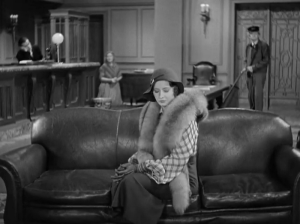
Post-Don dumping.
But Joan wants a change in her life, and marriage to Don is her ticket out. Unfortunately for Joan, Don’s dad has hired a private investigator to do some digging and he’s unearthed Ed’s existence. Don drops this bomb on Joan in the lobby of the hotel where she lives: “Of all the men in the world, Eddie Fields,” Don grouses. “A bootlegger, a racketeer, a crook.” And with that, he’s out the door and Joan’s dream of escaping her current existence disappears like so much smoke in a windstorm.
But she’s no quitter – not this dame. When Eddie comes tipping back in her life, Joan takes a powder, traveling all the way to Montreal, Canada, to get away from him and landing a job singing under the name of “Francine LaRue.” Before long, Eddie’s boys have tracked her down, but the ever-resourceful Joan finds another opportunity to escape. It turns out that her housekeeper, Emily (Leila Bennett), has signed on with a matrimonial agency and is leaving town to marry a wheat farmer . Joan offers the housekeeper a hundred dollars and the next thing you know, Joan’s on her way to North Dakota in Emily’s place.

The wedding night. Not good.
Joan’s new spouse is Jim Gilson (George Brent), who gets off on the wrong foot (and that’s putting it mildly) on their wedding night when he aggressively tries to put the moves on Joan. She’s not playing that game, and slaps him so hard that he ends up sleeping in the barn with the pigs. Over time, Joan falls in love with Jim, but he keeps her at arm’s length, with his treatment of her ranging from indifference to downright jackassery. “Our marriage is hopeless,” he tells her at one point. “We started all wrong. Like going into a race blindfolded.”
There’s more (much more) to this little tale, but I’ll let you discover the rest of the goings-on for yourself. I will give you this little tidbit, though – you ain’t seen the last of Mr. Eddie Fields. Tune into TCM on March 15th; it’s worth your time.
Favorite quote:
I have two favorites:
“You daffy little tomato, I’m bugs about you. I’d marry you myself if I wasn’t already married.” – Ed Fields (Lyle Talbot)
“I’m fed up with hoofing in shows. I’m sick of nightclubs, hustlers, bootleggers, chiselers and smart guys. I’ve heard all the questions and I know all the answers. And I’ve kept myself fairly respectable through it all. The whole atmosphere of this street gives me a high-powered headache. I’ve got a chance to breathe something else. And, boy, I’m grabbing it.” – Joan Gordon (Barbara Stanwyck)

That’s Clyde in the middle. More about him later.
Favorite scene:
Joan and Jim get married by the local Justice of the Peace (Clarence Wilson), who gathers up a couple of witnesses – his wife (Lucille Ward), who’s in the midst of making a cake and keeps stirring her batter during the ceremony, and Clyde (who, I assume, is the couple’s son), whose attention is captured by a fight outside the window between two snarling dogs. Throughout the brief service, the Justice of the Peace is chewing on a piece of tobacco, and at the conclusion of the vows, he declares, “I now pronounce you man and wife – three dollars please.” The wife, still clutching her bowl o’ batter, vigorously shakes Joan’s hand and wishes her happiness, but when Joan’s too-big ring falls off her finger, chaos ensues. The wife’s ample bottom bumps into the pot bellied stove, causing the pipe to topple, and all three end up on the floor as the bowl tips over, slathering the ring in batter.
What else?
Look for a young Anne Shirley in one scene – she plays the older daughter of a neighbor who has a newborn baby and gets some much-needed help from Joan.
Near the end of the film, Jim and Ed get into a rip-roaring fist fight. Reportedly, during the action, Lyle Talbot struck his head on a nail protruding from the wall and was bleeding profusely.

The blonde is not happy.
In the opening scene, when Joan is singing, she pays special attention to two men in the audience. One of the men is with a date – don’t miss the funky look on her face while Joan is singing to her man. It’s a hoot.
The film was directed by William Wellman, who also directed Barbara Stanwyck and George Brent in So Big (1932).
Clyde (Victor Potel), who was so fascinated by the fighting dogs during Joan and Jim’s nuptials, pops up again late in the film. In the nearby town, Clyde encounters both Joan and Jim separately, and on both occasions, he barks and howls at them like a dog. It’s really weird, y’all.
There are several lines of dialogue that point to the film’s pre-Codiness. In the scene where Joan pays the housekeeper, Emily, the hundred dollars, Emily tells Joan that she can use the money to get herself a husband right there in town. “And then,” she adds with a giggle, “I’d sort of have a chance to try the goods before I bought it.” (Whoa!) More spicy lines can be found while Joan is riding on the train to North Dakota with three other women, also on their way to be wed, who are sharing raucous stories about their spouses-to-be. One woman holds up a banana and proclaims, “You know what they say about men with bushy eyebrows and a long nose!”
 ———————————-
———————————-
Be sure and pop over to Speakeasy to check out Kristina’s Pre-Code Crazy pick for this month!
~ by shadowsandsatin on March 3, 2016.
Posted in Pre-Code Crazy, Pre-Code Films
Tags: Barbara Stanwyck, George Brent, North Dakota, pre-code, pre-Code Crazy, The Purchase Price, wheat farmer


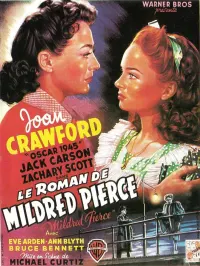




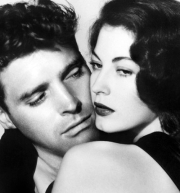
















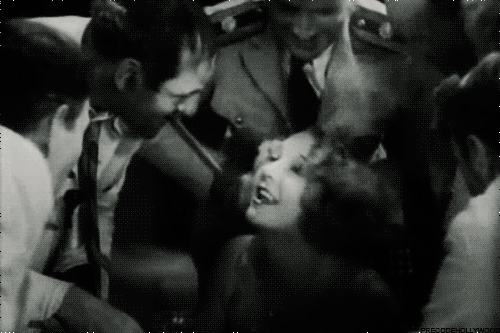


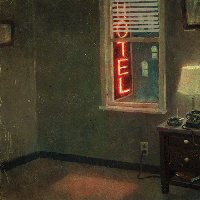
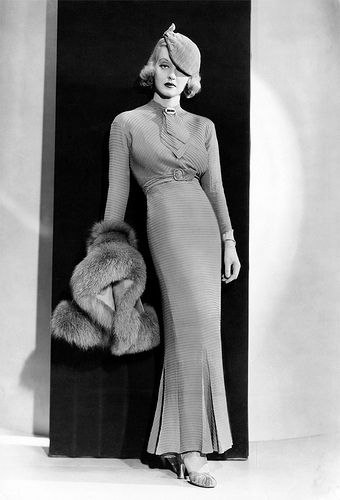



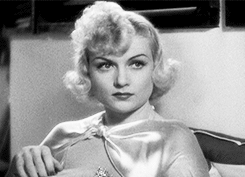
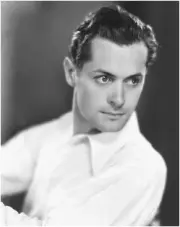
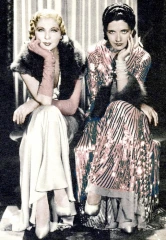

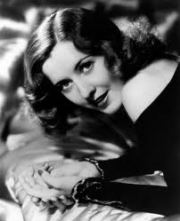



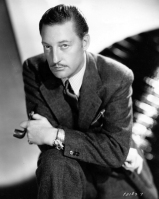




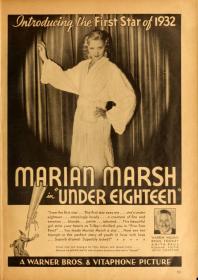
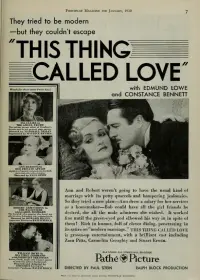

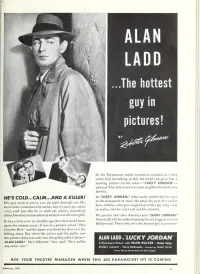
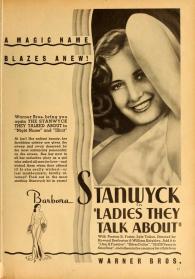

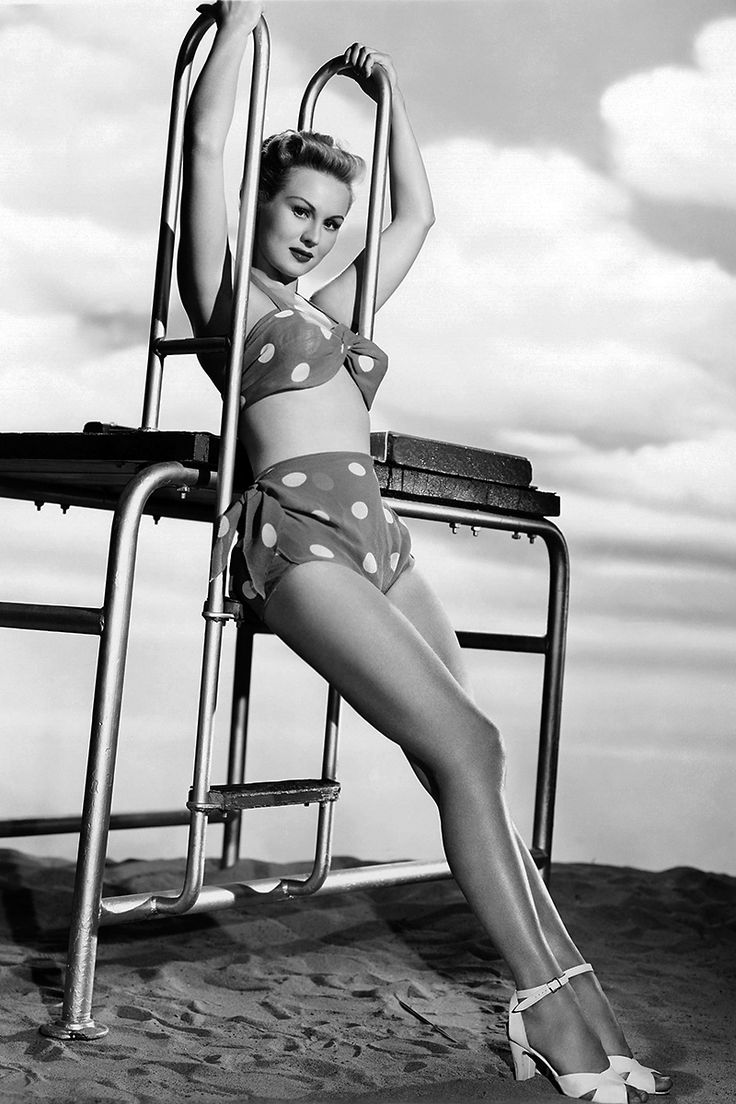



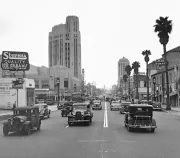
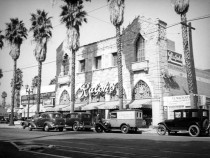


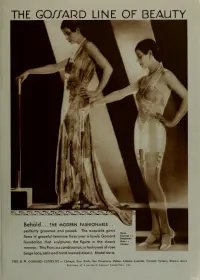

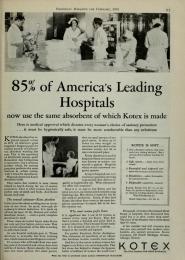

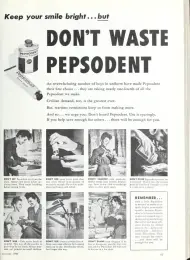


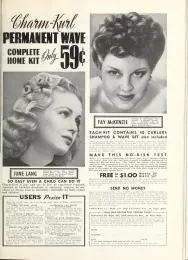





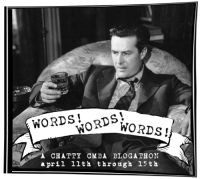

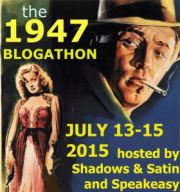
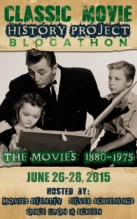
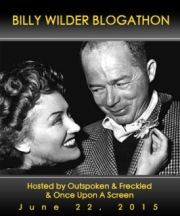


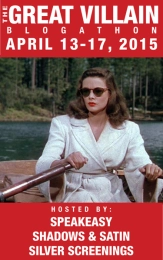


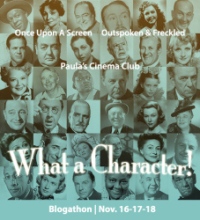
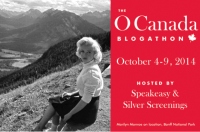


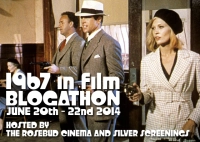


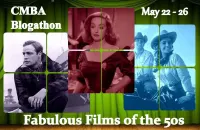
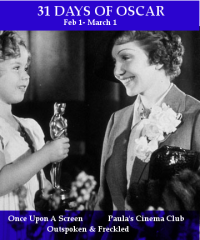
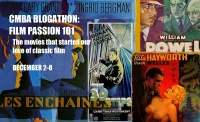







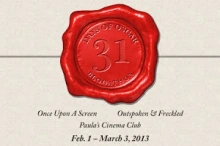

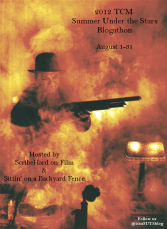


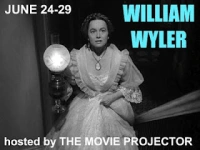





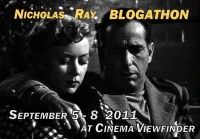

I thought I’d seen this but it’s not ringing any bells, I need to see it. So, George Brent, better with or without mustache? He once said Gable stole his mustache and his girls 🙂
I’m not a massive George Brent fan with or without the ‘stache, LOL! DId you get a chance to see it?
Not yet but I DVRd it so I will!
I love the line “Take a powder.” It’s too bad it went out of vogue.
As for this film, it looks pretty good. Thanks for the introduction! 🙂
I need to take a powder right now. I’m going to start saying that once a week. LOL
Great review. This film has also become a favorite. IMO one of George Brent’s best performances and a very fine film. Did Barbara Stanwyck ever give a bad performance? I don’t think so. Will watch it soon again, due to your review.
Thanks so much, Fedo! I certainly have never seen a bad Stanwyck performance. She was great, wasn’t she? Did you get a chance to watch The Purchase Price again?
Not yet, but will do…..in the meantime I want to share with you what I wrote several years ago at the Silverscreen Oasis when I first saw it:
Secondly I saw “The Purchase Price” (1932), a film which has unfair bad reviews in many sources, including Homer Dickens’ book The Films of Barbara Stanwyck.
Stany, who’s been one of my favorite actresses since I was a boy, plays a nightclub entertainer who’s fed up with her life –and married lover Lyle Talbot- and ends up living unwittingly in a farm with the character impersonated by George Brent.
George Brent’s performance as a naïve, sort of shy farmer impressed my favorably, because it’s quite different from the kind of roles he usually played and in my opinion he succeeded at it; with that “surprised” look on his face. When he first meets Stanwyck and he’s permanently sniffling –because of a cold-, which deeply annoys Stanwyck, I giggled constantly.
The characters’ romantic relationship is very well handled by the director, who builds up an intense sexual tension between both of them.
There is a perfect balance between romance and action in this film and it succeeds in depicting with sincerity the building of the relationship between the two lead characters; I “bought” every inch of it and that’s a result of Stanwyck’s tremendous talent, Wellman’s handling of the story and of Brent’s good performance, who may have seemed wooden for some other reviewers, but which was right for me.
There are many vignettes in this good little movie: when Stanwyck aids a lady who just had a baby alone with her junior daughter (portrayed by Anne Shirley who 5 years later played Stanwyck’s daughter in “Stella Dallas” (1937)). That scene is full of human touches.
There are other beautiful scenes, like when Stanwyck and Brent are sowing the seeds together in the country and later harvesting the wheat.
I really like what you had to say about the movie, Fedo! And you’re so right about the little vignettes — they really added to your understanding about the characters. (And do you know I didn’t even think about Anne Shirley being in Stella Dallas! I wonder if there was some connection between her being in this with Stanwyck and later in Stella Dallas — like someone noticing their chemistry, or maybe Stanwyck herself asking for her!)
[…] This film has grown on me over the years. I wasn’t that wild about it upon my first viewing – perhaps I was thrown off by the film’s abrupt shift from big city nightlife to rural drudgery – but I’ve enjoyed it more with each viewing. Barbara Stanwyck (how could I not have loved this movie from the start?) is nightclub singer Joan Gordon, whose upper-crust boyfriend (Hardie Albright) dumps her because of her relationship with her ex- (and possibly still current) lover, racketeer Ed Fields (Lyle Talbot). Joan makes the bold decision to take her life in a completely different direction and responds to an ad from a North Dakota wheat farmer seeking a wife, plunging her into a world in which she is faced with far more than she bargained for. (More on this film can be found here.) […]